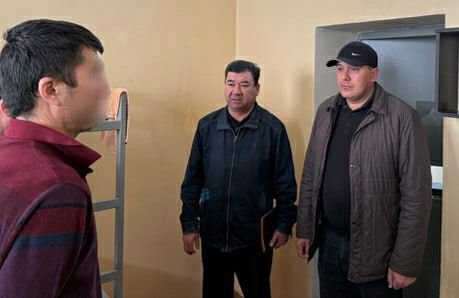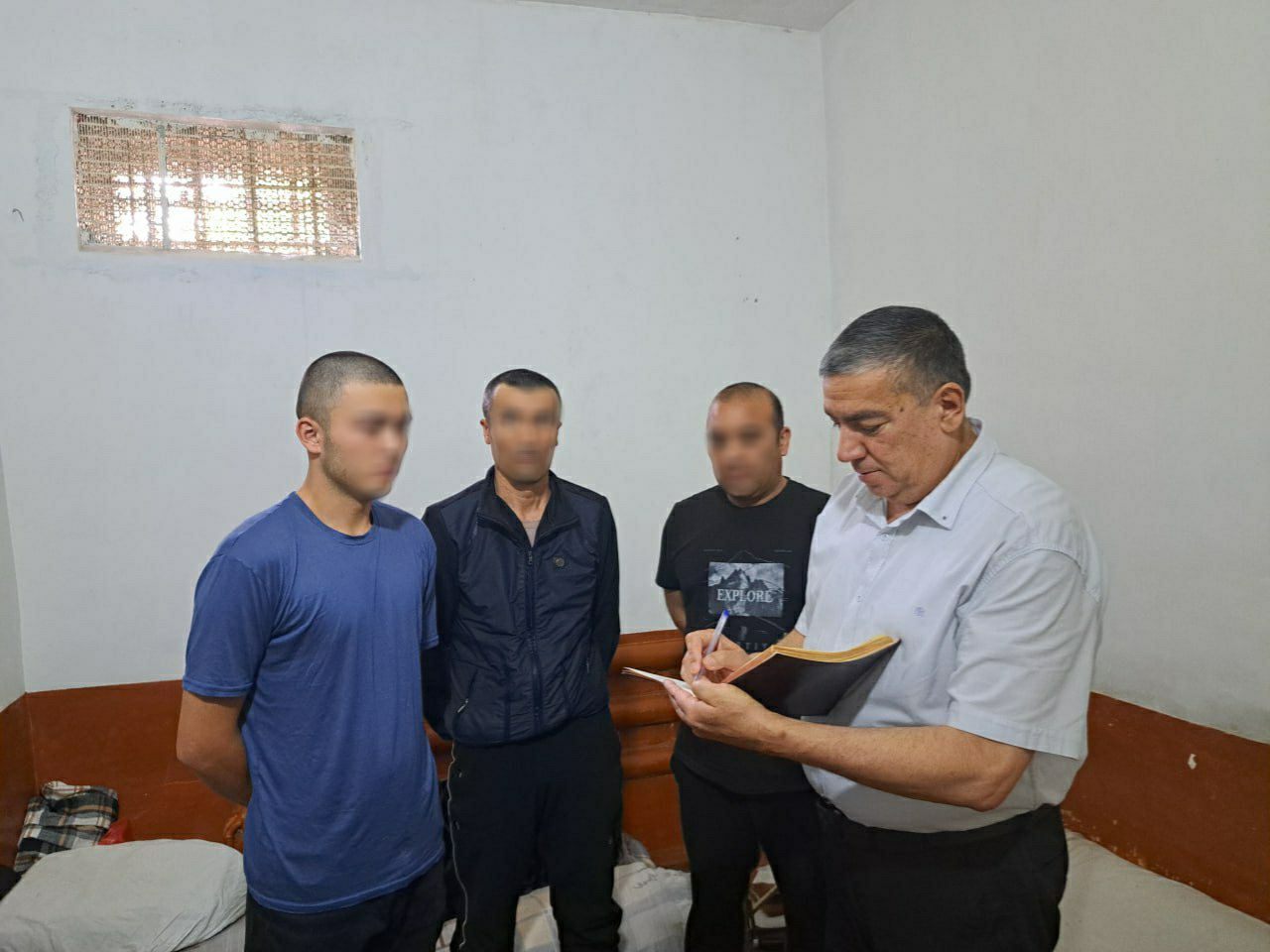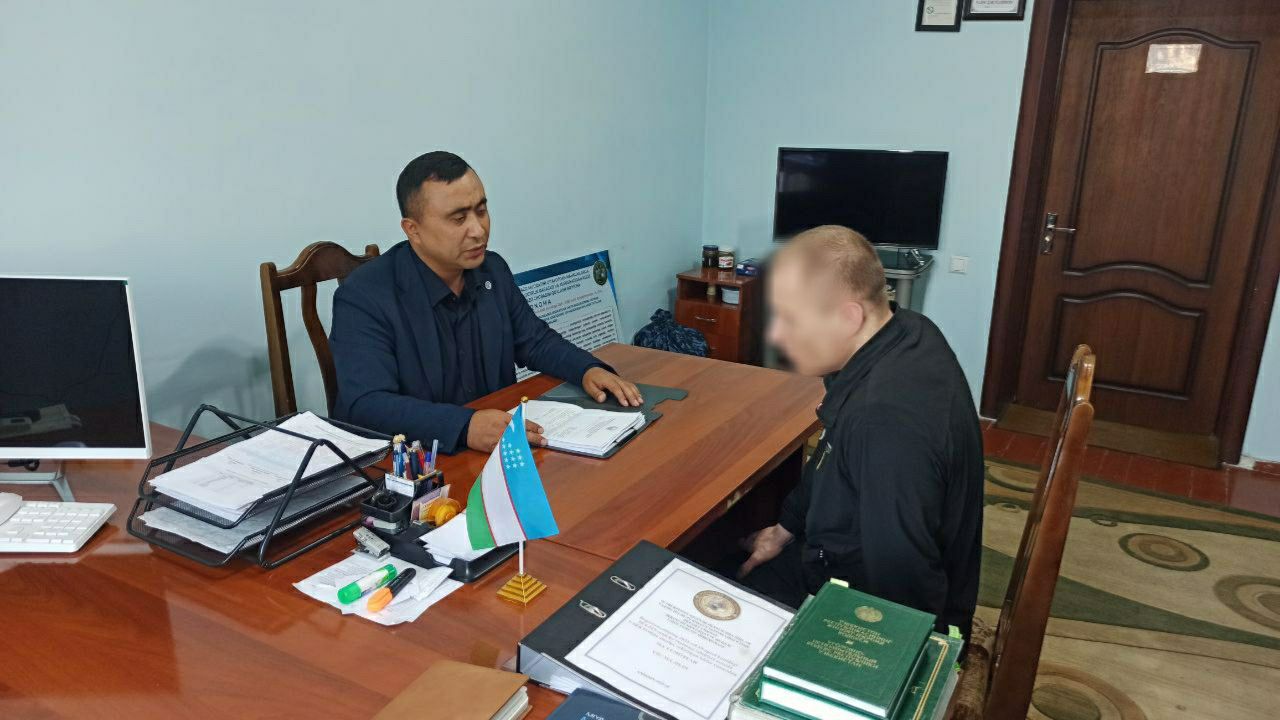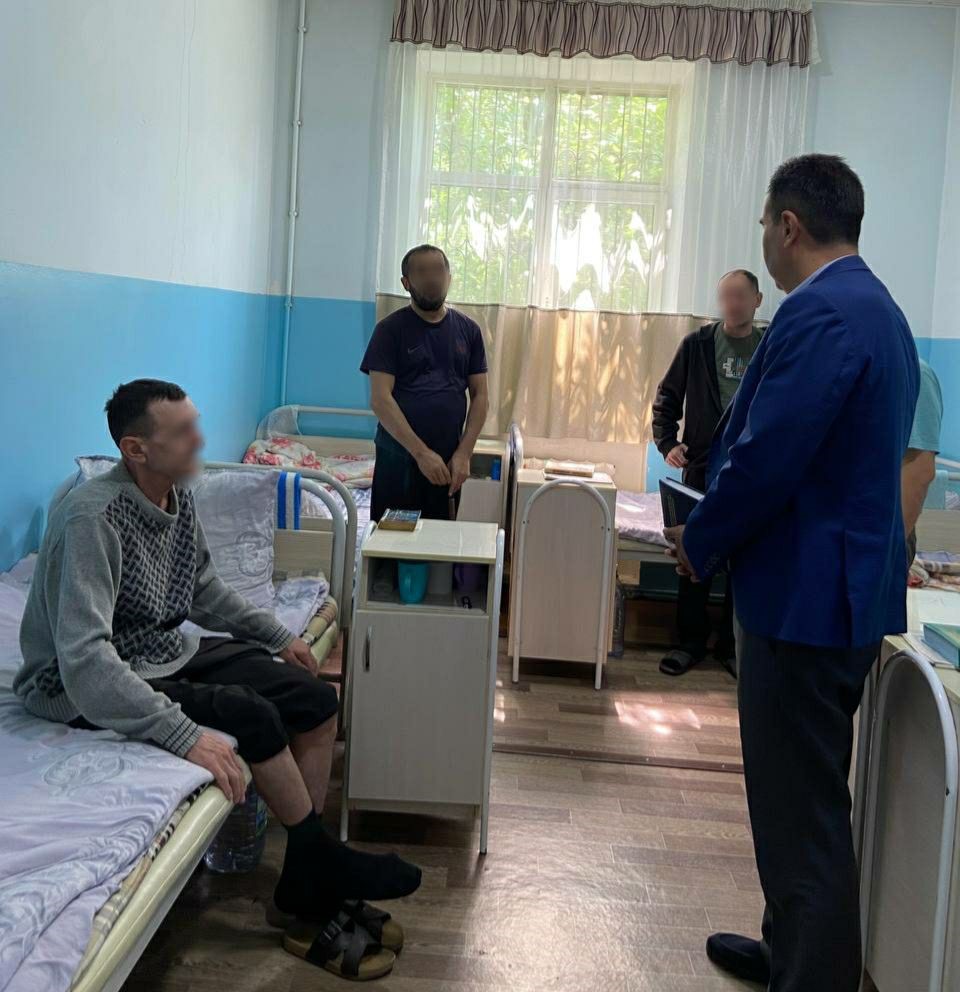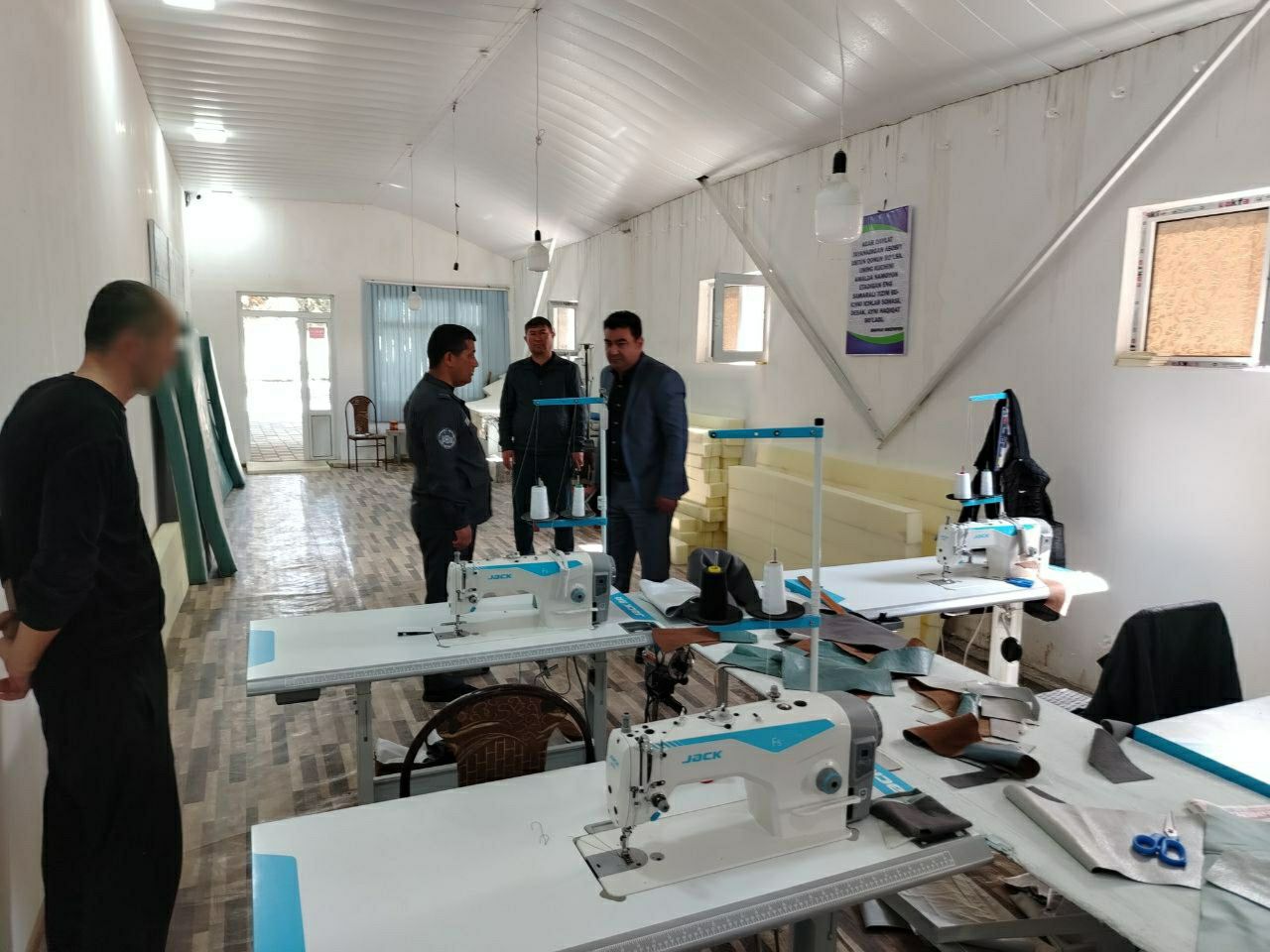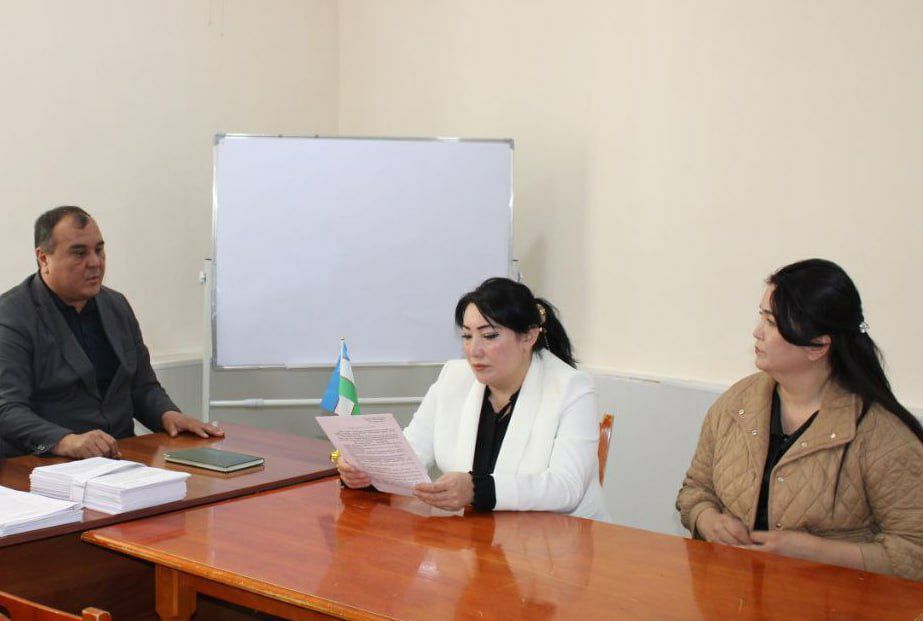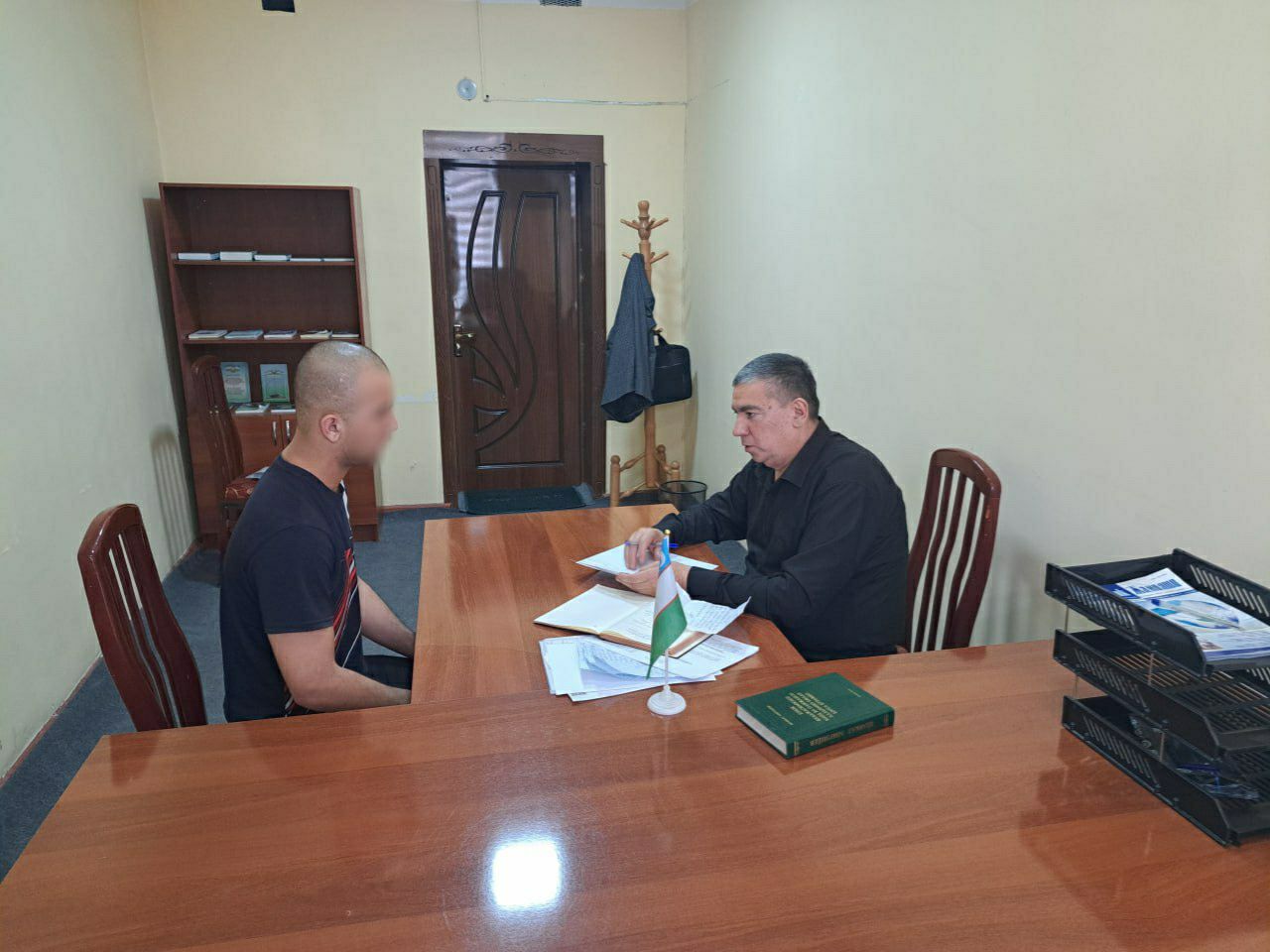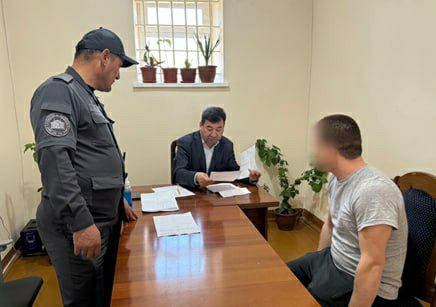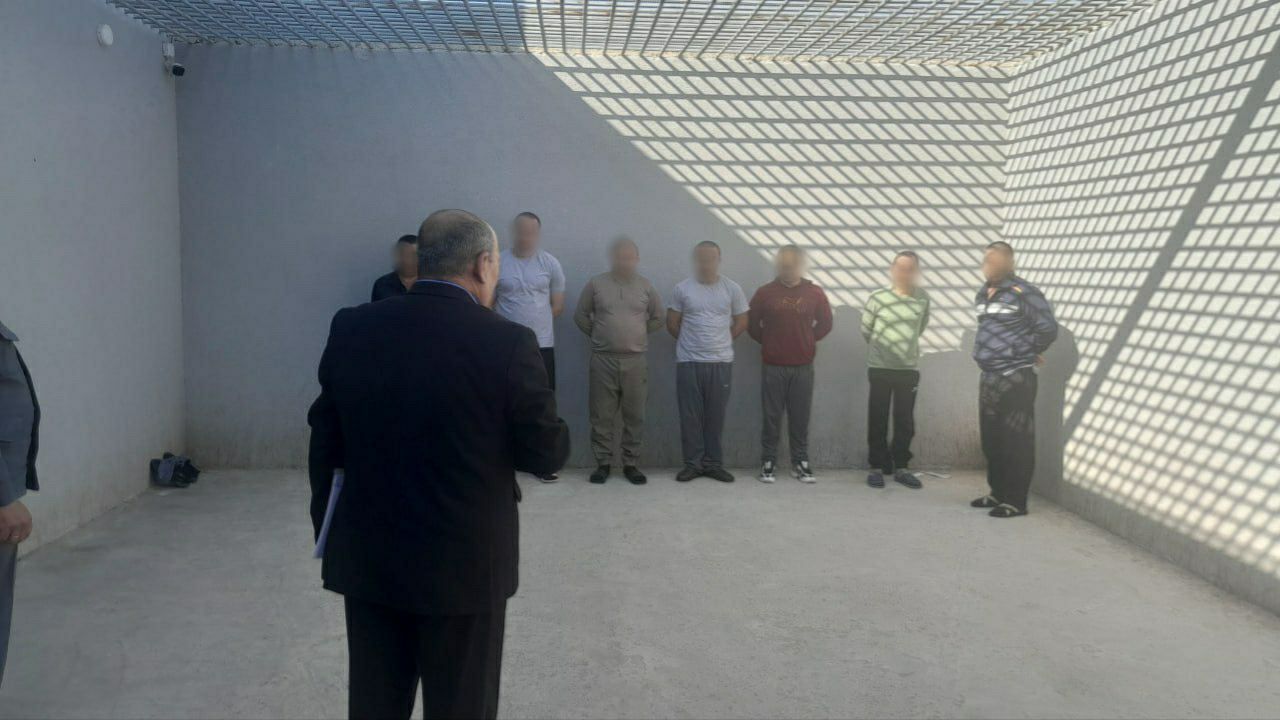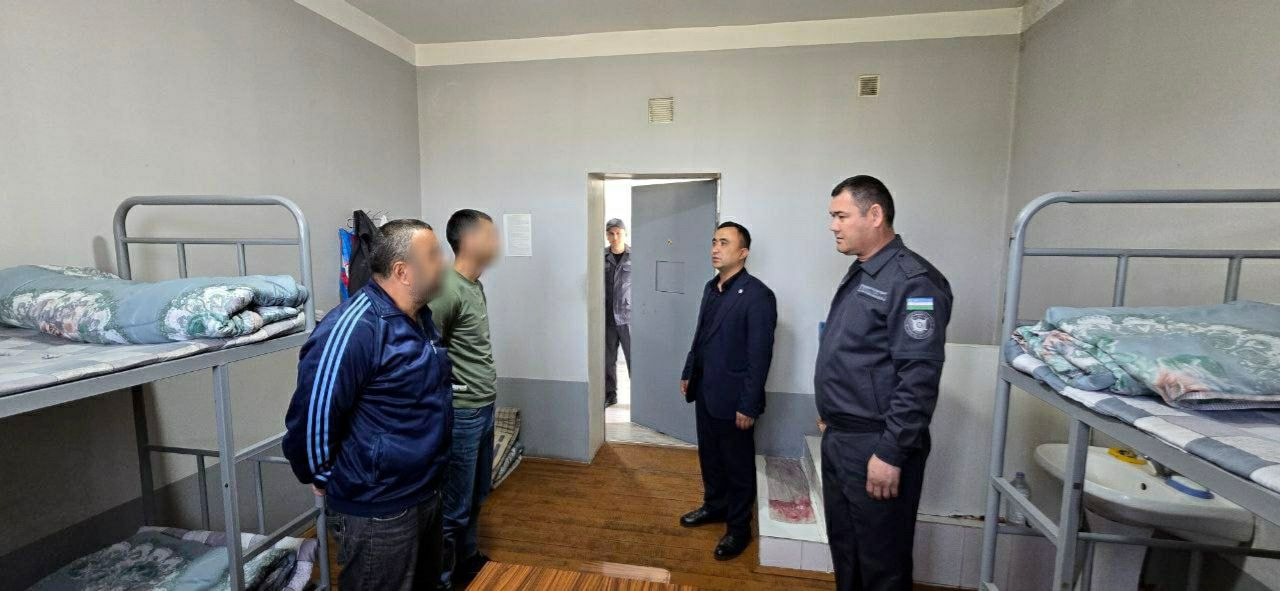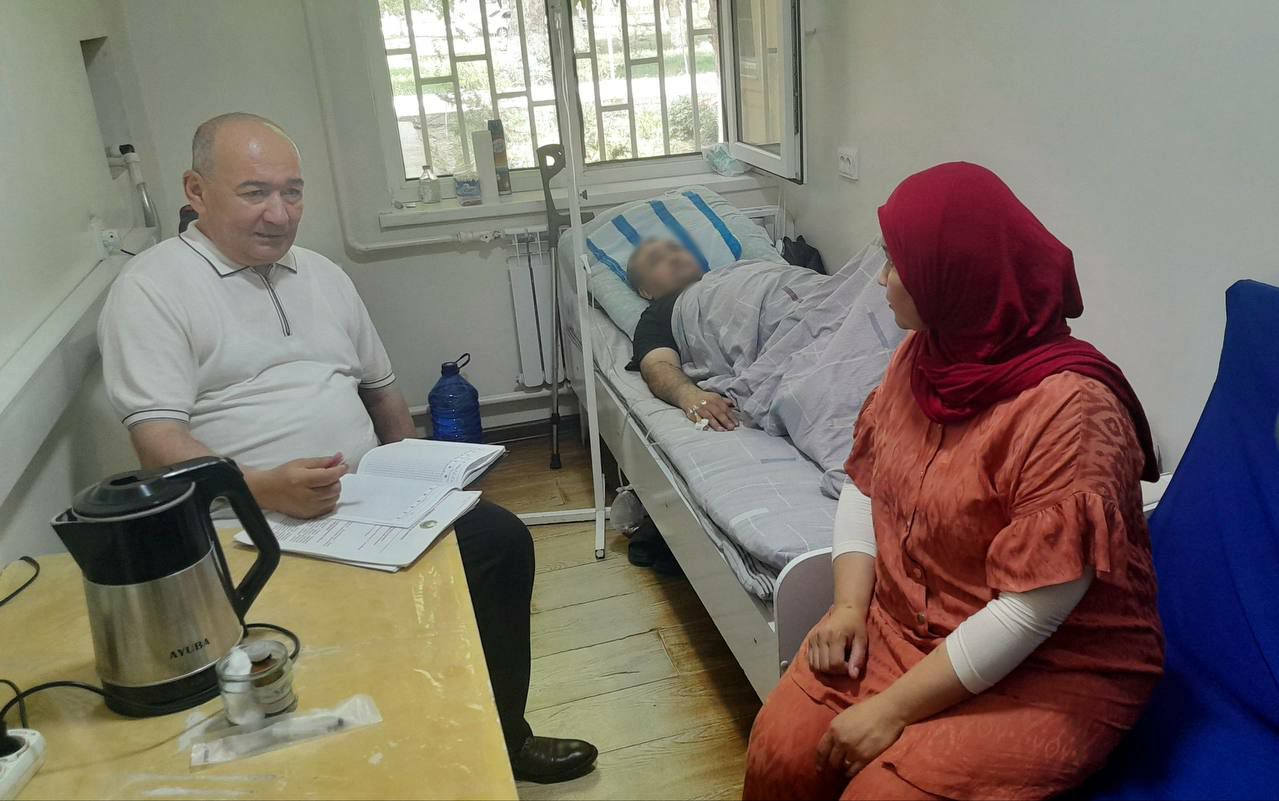The following institutions were inspected:
Branches of the Scientific-Practical Narcology Center in Samarkand and Tashkent;
Pretrial Detention Centers No. 6 (Namangan) and No. 11 (Khorezm);
Correctional Facility No. 38 (Samarkand) and Facility No. 13 (Tashkent region);
Temporary Detention Facilities of the District Departments of Internal Affairs in Mirzachul, Paxtakor, Dustlik (Jizzakh), Kurgontepa (Andijan), Norin and Mingbulok (Namangan), and Khazorasp (Khorezm).
The monitoring covered: Living conditions, nutrition, access to medical services, work opportunities, visitation rooms, libraries, interrogation and lawyer rooms, recreational yards, sports facilities, search rooms, food and medicine storage, and the functionality of surveillance cameras.
Key deficiencies identified: In the Samarkand branch of the Narcology Center, the number of patients exceeded the room capacity twofold. The Tashkent branch of the same center was found to be physically deteriorated, with insufficient patient beds, medicines, and medical supplies.
At the Mirzachul Temporary Detention Facility, there were no rooms for medical care or visitations, and no ventilation system in the cells.
In the Paxtakor facility, a video surveillance camera was found installed inside the lawyer consultation room, which is a violation of confidentiality rights.
Following these findings, the Ombudsman will submit formal recommendations (impact measures) to the relevant ministries and authorities to ensure elimination of the identified shortcomings.
Press Service of the Commissioner of Oliy Majlis for Human Rights (Ombudsman)













